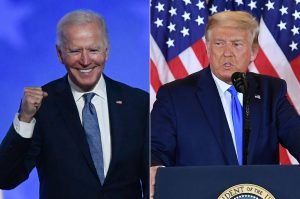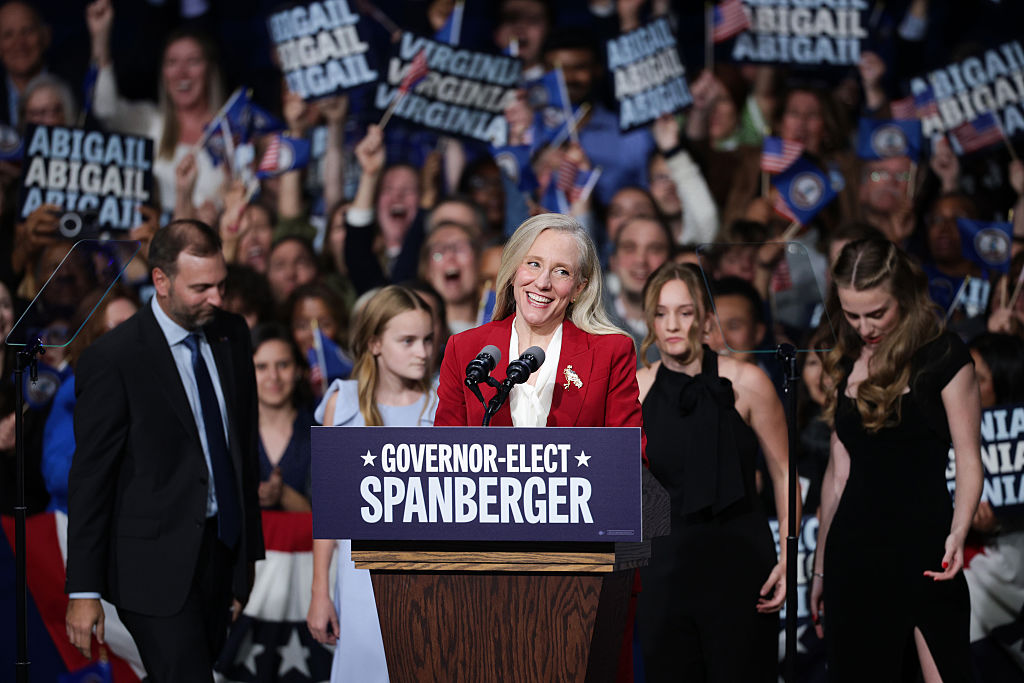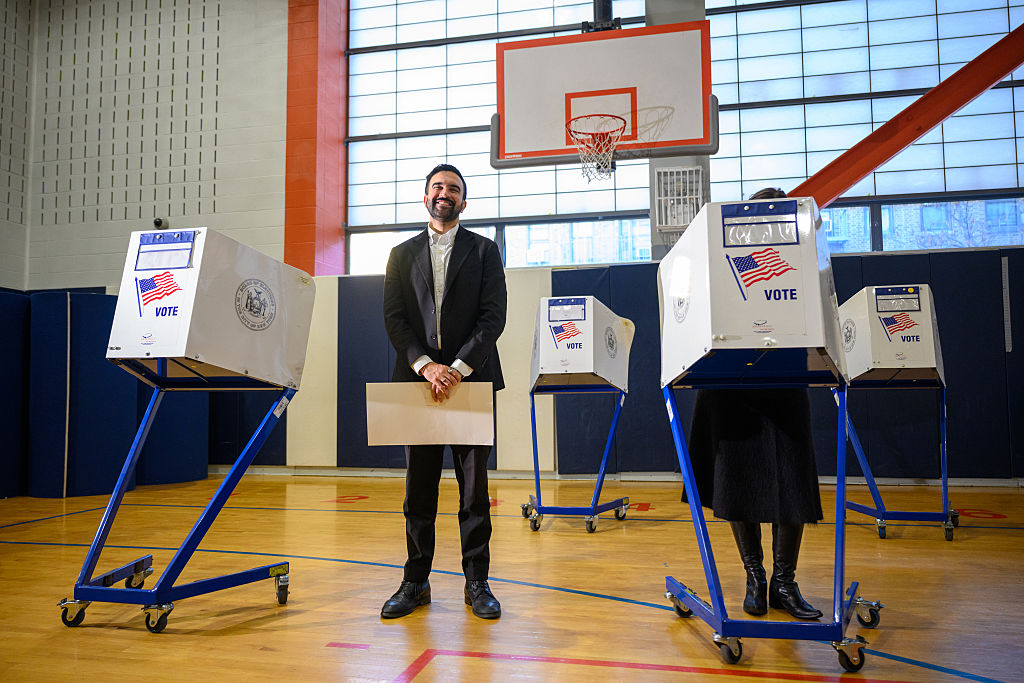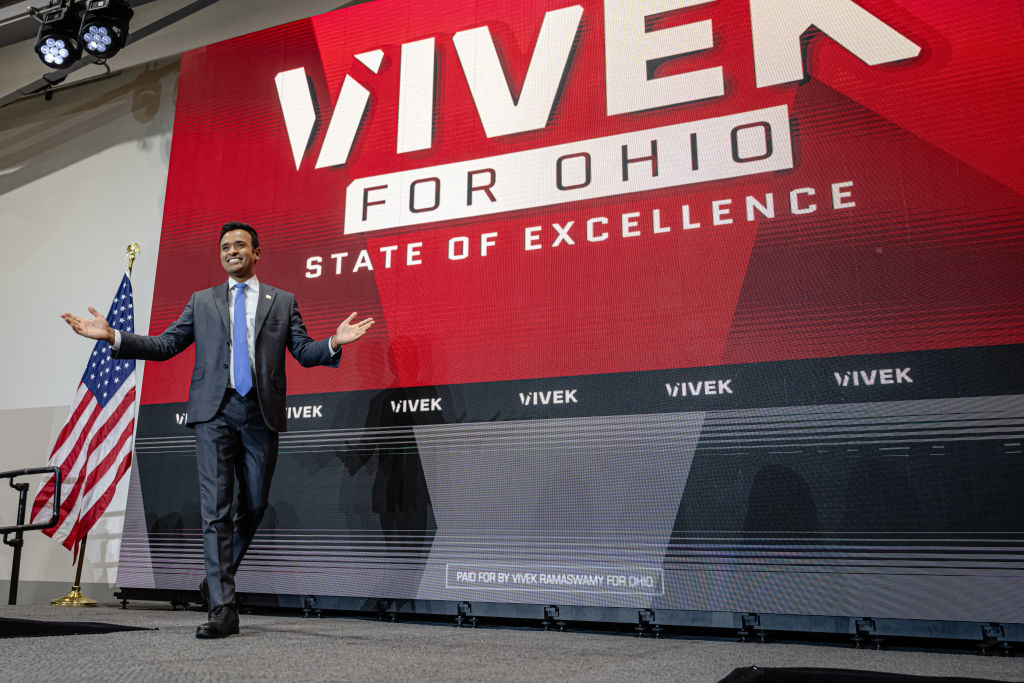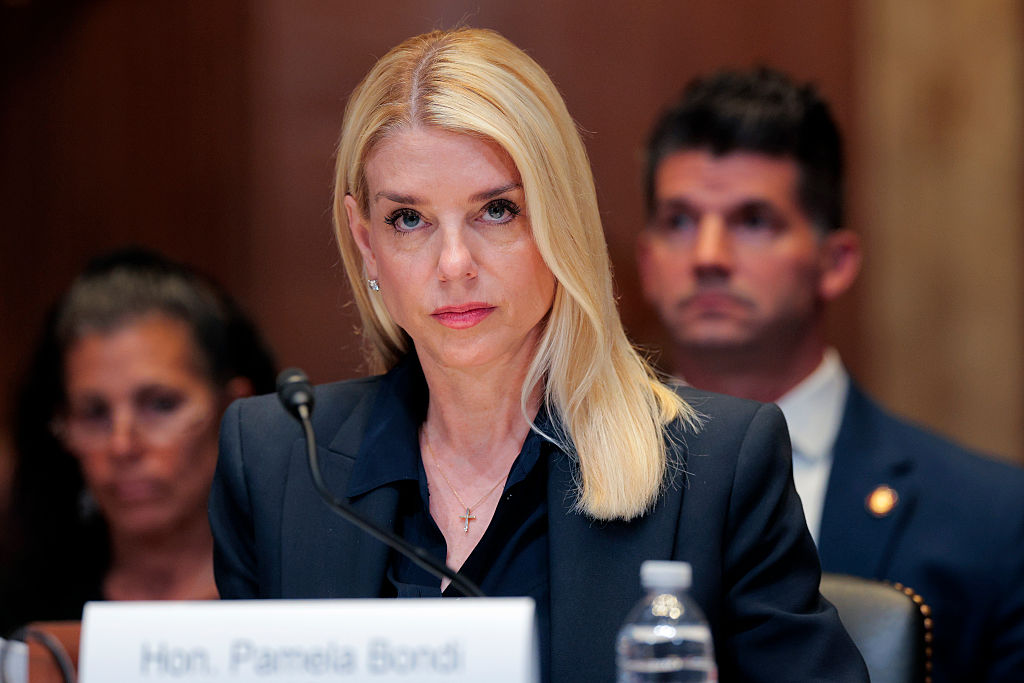Four years ago I cast a vote for Bernie Sanders in the Virginia Democratic Primary. It was a triple protest: against a Republican party that I was certain would cheat Donald Trump out of the nomination; against Trump’s own waffling on torture and foreign policy; and against Hillary Clinton, the hawkish liberal who at that time seemed the inevitable next president of the United States. I am, obviously, a moderate swing voter. Since turning 18 my presidential votes have included a Republican nominee (Bob Dole), a third-party nominee (Pat Buchanan), a Democratic nominee (John Kerry), two write-ins (Ron Paul and Rand Paul), and another Republican nominee (Trump). Add my 2016 primary vote for Bernie, and you have an obvious pattern: I’m a NeverClinton, NeverBush voter. McCain and Romney were Bushes in everything but the blood; Obama was not enough of an anti-Clinton even in 2008. (Kerry was lousy, to be sure, but had the advantage of running directly against a Bush.) Bernie and Trump, by contrast, represent a break with the establishment politics of the past 30 years, or at least a serious attempt at one. Whatever their other faults, that is a great virtue.But I won’t vote for Bernie again today, even though a Sanders-Trump match-up would present the country with an honest choice between left and right the way a competitive election should. My vote is for Tulsi Gabbard because she represents the most hopeful future for her side of politics. She’s not a septuagenarian, she’s not white, but she’s not an identity-politics liberal. Her campaign has focused on what is arguably the greatest of all the policy failures of the bipartisan establishment — or if not the greatest, the least excusable — the calamitous foreign policy of endless wars for liberal-democratic regime change that never comes to pass. America’s mideast wars this century have precipitated the virtual extirpation of some of the oldest Christian communities in the world, a crime for which the perpetrators in both parties may never atone in this lifetime. The cost in Americans’ lives lost to suicide and other deaths of despair at home, no less than to combat abroad, are likewise incalculable.  Gabbard is anti-war. She is not anti-American or anti-soldier, as too many left-wing critics of US foreign policy have been (and some right-wing critics, too). She’s a soldier herself, which hasn’t stopped her from being smeared as a ‘Russian asset’ by Hillary Clinton. The war pundits in clown makeup perpetually crying havoc on CNN and MSNBC call Gabbard an Assad apologist for her refusal to support a regime-change war in Syria like the regime-change wars that worked out so well (for the Islamists) in Iraq and Libya. Gabbard elicits these reactions because the liberal interventionists are afraid of what she represents as a veteran and a young Democrat who doesn’t accept the Washington consensus on war. A pillar of the humanitarian liberal faith is the salvific power of war waged with good intentions, and Gabbard openly calls it into question.By comparison, Bernie has tended to downplay foreign policy, just as in 2016 — he could have humiliated Hillary Clinton the way Trump humiliated Jeb Bush if he’d made the Iraq War as much of a campaign issue as Trump did that year. Sanders likes to remind Joe Biden of his vote for that war, but the point is easily lost in Sanders’s tirades about domestic policy. And when it comes to domestic policy, Sanders is less and less his own man: he sounds more and more like Michael Bloomberg on gun control, and more and more like all the open-borders billionaires on immigration. His democratic socialism, meanwhile, is becoming the mainstream of the Democratic party. The party establishment is doing everything it can to frustrate him in today’s elections, but Sanders has already made his peace with the establishment on many important fronts, and the future of the party may well be a combination of the worst features of the establishment and Bernie.I would rather see a Democratic party of the future that’s more like Gabbard than like Sanders. And much as I may disagree with Gabbard on domestic politics, too, a vote for her is the clearest possible vote against the war party. So this Super Tuesday, my ballot goes to Tulsi.
Gabbard is anti-war. She is not anti-American or anti-soldier, as too many left-wing critics of US foreign policy have been (and some right-wing critics, too). She’s a soldier herself, which hasn’t stopped her from being smeared as a ‘Russian asset’ by Hillary Clinton. The war pundits in clown makeup perpetually crying havoc on CNN and MSNBC call Gabbard an Assad apologist for her refusal to support a regime-change war in Syria like the regime-change wars that worked out so well (for the Islamists) in Iraq and Libya. Gabbard elicits these reactions because the liberal interventionists are afraid of what she represents as a veteran and a young Democrat who doesn’t accept the Washington consensus on war. A pillar of the humanitarian liberal faith is the salvific power of war waged with good intentions, and Gabbard openly calls it into question.By comparison, Bernie has tended to downplay foreign policy, just as in 2016 — he could have humiliated Hillary Clinton the way Trump humiliated Jeb Bush if he’d made the Iraq War as much of a campaign issue as Trump did that year. Sanders likes to remind Joe Biden of his vote for that war, but the point is easily lost in Sanders’s tirades about domestic policy. And when it comes to domestic policy, Sanders is less and less his own man: he sounds more and more like Michael Bloomberg on gun control, and more and more like all the open-borders billionaires on immigration. His democratic socialism, meanwhile, is becoming the mainstream of the Democratic party. The party establishment is doing everything it can to frustrate him in today’s elections, but Sanders has already made his peace with the establishment on many important fronts, and the future of the party may well be a combination of the worst features of the establishment and Bernie.I would rather see a Democratic party of the future that’s more like Gabbard than like Sanders. And much as I may disagree with Gabbard on domestic politics, too, a vote for her is the clearest possible vote against the war party. So this Super Tuesday, my ballot goes to Tulsi.
Why I’m voting for Tulsi in Virginia
A vote for her is the clearest possible vote against the war party
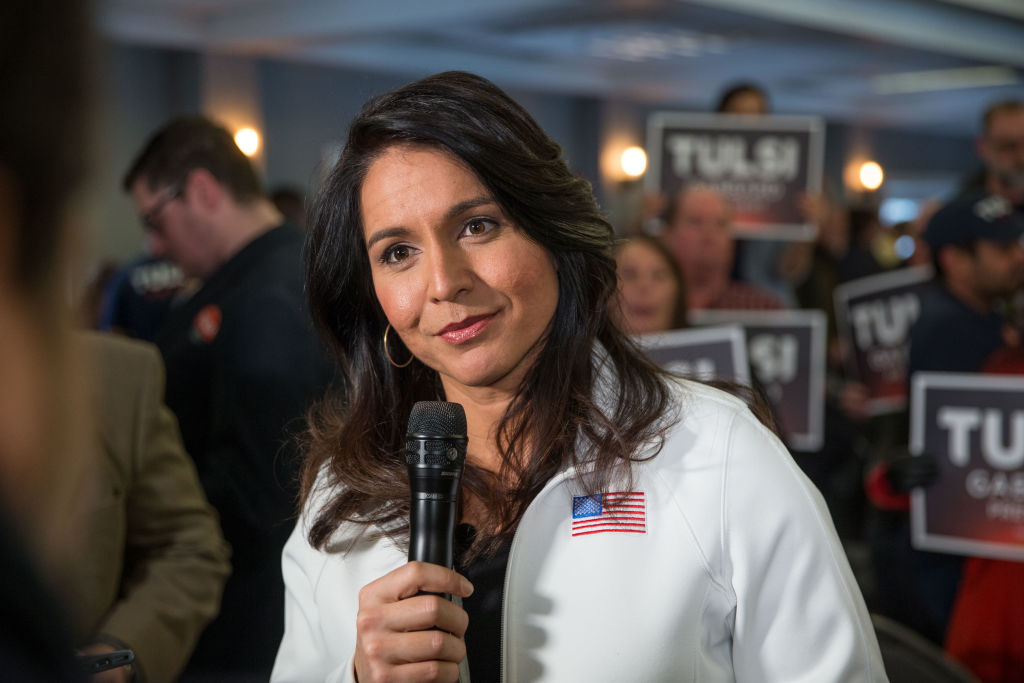
Representative Tulsi Gabbard (Getty)
Four years ago I cast a vote for Bernie Sanders in the Virginia Democratic Primary. It was a triple protest: against a Republican party that I was certain would cheat Donald Trump out of the nomination; against Trump’s own waffling on torture and foreign policy; and against Hillary Clinton, the hawkish liberal who at that time seemed the inevitable next president of the United States. I am, obviously, a moderate swing voter. Since turning 18 my presidential votes have included a Republican nominee (Bob Dole), a third-party nominee (Pat Buchanan), a Democratic nominee (John Kerry), two…
Comments
Share
Text
Text Size
Small
Medium
Large
Line Spacing
Small
Normal
Large









